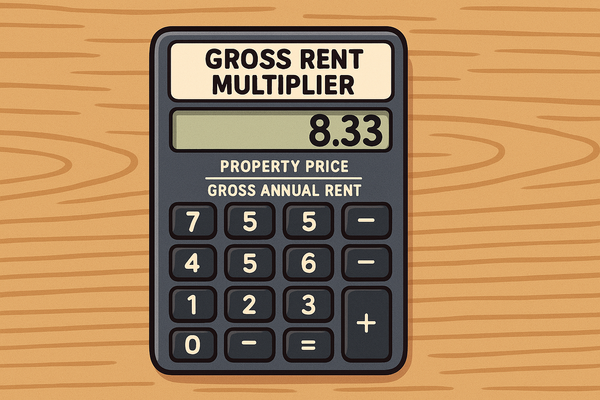New Hampshire Squatters Rights Guide: Understanding Adverse Possession Laws
To make an adverse possession claim in New Hampshire, the person making the claim must prove their occupation has been uninterrupted for the full 20-year period

From "River Dave" to Linda Bishop, and routine cases of accidental boundary encroachments, New Hampshire is brimming with fascinating stories that highlight the complex intersection of property rights and unauthorized occupation.
With its 20-year statutory period and evolving legislation, the "Live Free or Die" state presents unique challenges for property owners seeking to protect their real estate from adverse possession claims.
Whether you own vacant land in rural areas or investment properties in more populated regions, understanding New Hampshire's specific approach to squatters rights and adverse possession is essential for safeguarding your property interests against potential claims.
Introduction to Squatters' Rights in New Hampshire
- Definition of squatters vs. trespassers in New Hampshire: Squatters occupy property without legal ownership but with the intent to claim rights, while trespassers simply enter property illegally without intent to stay.
- Basic overview of adverse possession in New Hampshire: Adverse possession is the legal process by which a squatter can gain legal title to a property after occupying it continuously for a specific period.
- Why property owners should understand these laws: Knowledge of New Hampshire squatters rights helps protect your real estate investments and prevents unauthorized occupants from gaining legal ownership of your property.
- Historical purpose of adverse possession laws: These laws were designed to ensure land use efficiency and resolve boundary disputes, dating back to early property law in the United States.
Squatter Snippet: Real Case from New Hampshire
The remarkable story of "River Dave" (David Lidstone) became one of New Hampshire's most well-known adverse possession cases. For 27 years, this Air Force veteran lived in a small, self-built cabin on a 73-acre property in Canterbury without the owner's permission. In 2021, the 81-year-old was jailed for civil contempt when the property owner sought to remove him.
Though Lidstone claimed he had verbal permission from a previous owner years ago, the current owner, Leonard Giles of Vermont, had been unaware of his presence until 2015. The case gained significant public attention, with many community members rallying to support "River Dave" despite his status as a squatter under New Hampshire law.
This case highlights the complex human dimensions that can underlie squatters rights cases, especially when long-term occupation is involved.
Key Timeline: Statutory Period in New Hampshire
- Required occupation period: 20 years in New Hampshire
- Continuous possession requirement: To make an adverse possession claim in New Hampshire, the person making the claim must prove their occupation has been uninterrupted for the full 20-year period
- Comparison with neighboring states:
- Massachusetts: 20 years
- Maine: 20 years
- Vermont: 15 years
- Rhode Island: 10 years
- Connecticut: 15 years
- Timeline exceptions:
- Military service may temporarily suspend the timeline
- Legal incompetence/disability may extend deadlines
Adverse Possession Timeline Comparison
| State | Required Years | Special Conditions |
|---|---|---|
| New Hampshire | 20 years | None explicitly required but tax payments strengthen claim |
| Massachusetts | 20 years | None explicitly required |
| Maine | 20 years | For uncultivated land in incorporated places; payment of taxes required |
| Vermont | 15 years | None explicitly required |
| Rhode Island | 10 years | None explicitly required |
| Connecticut | 15 years | None explicitly required |
Quick Guide for Property Owners
New Hampshire's approach to adverse possession presents unique challenges for property owners, with one of the longest statutory periods in the northeastern United States.
A surprising aspect of New Hampshire's squatters rights laws is that while the state requires a lengthy 20-year occupation period, it does not explicitly require payment of property taxes or color of title—factors that are mandatory in many other states with shorter time requirements.
This creates a situation where the time threshold is high, but other barriers to adverse possession claims are relatively low compared to neighboring states.
The tragic case of Linda Bishop, who took refuge in an abandoned farmhouse in Concord during a mental health crisis, provides a sobering reminder that unauthorized property occupation can sometimes represent desperate circumstances rather than deliberate attempts to claim ownership.
While most adverse possession cases involve boundary disputes or deliberate occupation, vigilant property monitoring remains essential regardless of the situation.
- Know your timeline: Squatters can claim rights after 20 years of continuous occupation in New Hampshire
- Documentation matters: Keep property records, tax receipts, and inspection logs to prove your legal ownership
- Regular monitoring required: Vacant property is most vulnerable to squatters and unauthorized occupants
- Legal obligation: Self-help eviction methods are illegal in New Hampshire; follow proper procedures
- Act quickly: The longer squatters remain, the stronger their potential adverse possession claim becomes
- Proper notices: Follow legal procedures when removing unauthorized occupants from your property
Prevention: Protecting Your Property
In New Hampshire, prevention strategies must account for the state's rural character and seasonal challenges. Court records show that squatters most commonly gain access to properties through seasonal or vacation homes left unmonitored for extended periods, abandoned buildings in rural areas, and properties in transition (during probate, foreclosure, or between owners). These entry points are particularly vulnerable during New Hampshire's harsh winters when regular property checks become more difficult.
New Hampshire courts view regular documented visits as strong evidence of active property monitoring, especially when property owners can provide photographic evidence with timestamps, maintenance records, and documentation of interactions with neighbors regarding property supervision.
Courts have consistently ruled that property owners who maintain this level of documentation are in a much stronger position to defeat potential adverse possession claims.
- Regular inspections:
- Visit property at least quarterly (monthly for high-risk properties)
- Document each visit with dated photos and written records
- Effective security measures:
- Secure all entry points with quality locks and reinforcements
- Consider alarm systems connected to monitoring services
- Install motion-activated lighting around property perimeters
- Clear signage:
- Post "No Trespassing" signs visibly around the property boundaries
- Mark property boundaries clearly with fencing or markers
- Property management options:
- Hire professional property management for vacant properties
- Consider rental options for seasonal or long-term vacancies
- Documentation practices:
- Keep property tax payment records to demonstrate ownership
- Maintain utility connections even during vacancy periods
- Take dated photographs of property regularly and store securely
Property Risk Assessment Matrix
| Property Type | Risk Level | Recommended Prevention | Estimated Cost |
|---|---|---|---|
| Vacant Land | High | Regular inspections, clear boundary markers, security cameras | $500-2,000 |
| Abandoned Building | Very High | Security system, regular patrols, structural securing | $1,000-5,000 |
| Seasonal Property | High | Property management service, security system, neighbor checks | $1,500-4,000 |
| Investment Property | Medium | Professional management, tenant screening, regular inspections | $1,000-3,000 |
Removing Squatters: Step-by-Step Process
New Hampshire's procedure for removing squatters follows a structured legal process similar to standard tenant evictions. Under RSA 540, property owners must provide proper notice and obtain a court order before removing any unauthorized occupants.
Self-help eviction methods such as changing locks, removing doors, or shutting off utilities are illegal in New Hampshire and can result in civil penalties and potential criminal charges against the property owner, regardless of the squatter's legal status.
Recent legislative developments have sought to strengthen property owners' rights. House Bill 1400 (HB1400), introduced in 2024, aims to revoke existing language granting squatters' rights and clearly define legal residents as requiring an agreement with the property owner. An amendment was also proposed that would nullify squatters' rights in the state, allowing law enforcement to remove individuals at the owner's request without requiring a lengthy court process.
- Document the situation:
- Take photos/video of the squatter's occupation
- Gather property deeds, tax records, and other ownership documents
- Issue proper written notice to vacate:
- For most squatters, a 30-day notice to vacate is typically required
- For situations involving property damage or illegal activity, a 7-day notice may be used
- File appropriate legal complaint:
- File an eviction lawsuit with the New Hampshire District Court
- Include all required documentation of ownership
- Attend court hearing:
- Present evidence of legal ownership and unauthorized occupation
- Be prepared for potential adverse possession claims
- If successful, obtain writ of possession from the court
- Sheriff enforces removal, not property owner:
- Only the sheriff has jurisdiction to remove squatters in New Hampshire
- Local police generally cannot remove squatters without a court order
- What NOT to do:
- Do not change locks yourself while squatters are still occupying
- Do not shut off utilities to force squatters out
- Do not remove squatter's belongings from the property
- Do not threaten or intimidate squatters to leave
- Do not use physical force to remove squatters
- Timeline expectations:
- Notice period: 7-30 days depending on situation
- Court processing: 1-3 weeks
- Eviction enforcement: 5-14 days after judgment
Eviction Process Timeline
New Hampshire's eviction timeline is governed by RSA 540, which establishes specific waiting periods between each step. Court data shows that the average eviction process takes 6-10 weeks from start to finish in New Hampshire, though this can vary significantly depending on court backlogs and case complexity. Property owners should be aware that if a squatter makes an adverse possession claim, this can extend the process considerably as the court will need to evaluate whether the occupation meets all the legal requirements for such a claim.
[Discovery of Squatter] → [Documentation: 1-2 days] → [Notice to Vacate: 7-30 days] →
[Court Filing: 1 day] → [Waiting for Hearing: 1-3 weeks] → [Court Hearing: 1 day] →
[If successful, Wait for Writ: 2-5 days] → [Sheriff Enforcement: 5-14 days] → [Property Returned]
Total estimated timeline: 6-10 weeks
Legal Requirements for Adverse Possession
In New Hampshire, adverse possession claims are evaluated using "OCEAN" criteria: Open, Continuous, Exclusive, Adverse (hostile), and Notorious possession. New Hampshire courts have developed specific interpretations for each element through numerous cases, including the 2023 New Hampshire Supreme Court case of Maddock v. Higgins, which clarified that continuous possession must be genuinely uninterrupted to qualify for adverse possession.
The burden of proof in New Hampshire adverse possession cases falls on the squatter (adverse possessor), who must demonstrate clear and convincing evidence for each required element.
- Hostile/Adverse Claim
- The squatter must occupy the property without the legal owner's permission
- New Hampshire follows the "objective standard" for hostility, focusing on the nature of possession rather than the squatter's subjective intent
- Any permission, including "gentlemen's agreements," terminates when property is transferred to new owners
- Actual Possession
- Physical occupation of the property is required
- The squatter must use the property as a true owner would
- Evidence includes living on the property, maintaining it, or using it for business purposes
- Open and Notorious Possession
- Occupation must be visible and not concealed
- The squatter's presence must be "open and obvious to neighbors or anyone else"
- Must be sufficient to "justify a presumption that the owner was notified"
- Exclusive Possession
- The squatter must not share possession with others, including the true owner
- Must demonstrate sole control over the property
- Occasional entry by the true owner does not necessarily defeat exclusivity
- Continuous Possession
- Uninterrupted occupation for the full 20-year statutory period
- Moving away or abandoning the property resets the clock
- Even brief intermittent absences could potentially disrupt continuity
- Merely storing personal items is insufficient; physical inhabitation is required
Adverse Possession Requirements Matrix
| Requirement | Required in NH? | Evidence Courts Accept | Common Pitfalls |
|---|---|---|---|
| Hostile Claim | Yes | No lease/rental agreement, acting without permission | Having any form of permission from owner |
| Actual Possession | Yes | Living on property, maintaining buildings, active use | Occasional or partial use of property |
| Open & Notorious | Yes | Visible occupation, improvements, neighbor testimony | Hidden or secretive occupation |
| Exclusive | Yes | Sole control, preventing others' access | Sharing property with others or owner |
| Continuous | Yes | 20 years uninterrupted occupation | Gaps in occupation, temporary absences |
Frequently Asked Questions
- "Can I remove squatters myself in New Hampshire?"
- No, self-help eviction is illegal in New Hampshire
- You must follow the legal eviction process through the courts
- "Do squatters have to pay property taxes in New Hampshire?"
- Tax payment is not strictly required for adverse possession in New Hampshire
- However, evidence of tax payments significantly strengthens a squatter's claim
- "What's the difference between a squatter and a trespasser in New Hampshire?"
- Trespassers: Short-term unauthorized presence without intent to claim property rights
- Squatters: Ongoing occupation with potential adverse possession claim after 20 years
- "Who should I contact first - police or sheriff?"
- For immediate safety concerns: Police
- For eviction enforcement: Sheriff (only they have jurisdiction to remove squatters)
- "Can squatters claim abandoned property in New Hampshire?"
- Yes, if all adverse possession requirements are met over 20 years
- Abandonment may actually strengthen their adverse possession claim
- "How quickly can I evict a squatter in New Hampshire?"
- Typical timeline: 6-10 weeks
- Factors affecting timeline: court schedule, evidence quality, potential appeals
Decision Tree for Property Owners
New Hampshire law makes important distinctions between criminal trespass and civil squatting situations. Under RSA 635:2, criminal trespass occurs when a person knowingly enters or remains in a place without license or privilege, while squatting typically falls under civil law governed by RSA 540 (landlord-tenant law) and RSA 508:2 (adverse possession).
New Hampshire law enforcement is generally instructed to treat established occupancy as a civil matter requiring court proceedings rather than immediate removal, even when the occupants lack legal right to the property.
Discovered Someone on Your Property
├── Emergency/Dangerous Situation? → Yes → Call Police
│ └── No ↓
├── Recent Entry (Less than 24 hours)? → Yes → Call Police (Criminal Trespasser)
│ └── No ↓
├── Evidence of Established Occupation? → Yes → Legal Eviction Process Required
│ └── No ↓
└── Uncertain Situation → Consult Attorney Before Taking Action
Recent Legislative Changes in New Hampshire
New Hampshire has seen significant legislative activity regarding squatters' rights in recent years, with several bills aimed at strengthening property owners' rights and making it more difficult for squatters to establish claims. House Bill 1400 (HB1400), introduced in 2024, represents one of the most substantial potential changes to New Hampshire's approach to unauthorized occupation in decades.
- Recently Proposed Laws:
- HB1400: Introduced in 2024, this bill aims to revoke existing language granting squatters' rights and clearly define three types of legal residents (tenant, subtenant, and implied tenant), all requiring an agreement with the property owner.
- Impact on property owners: Would classify occupation without such an agreement as criminal trespass, a misdemeanor carrying penalties of up to six months in jail and a $1,000 fine.
- Additional provisions: Would make squatters liable for all damages to the property and explicitly prohibit the use of squatters' rights as a valid defense in court.
- Pending Amendments:
- A significant amendment proposed in April 2024 would nullify any squatters' rights in New Hampshire, allowing law enforcement to remove individuals from a property at the owner's request without going through a lengthy court process.
- This represents one of the most aggressive anti-squatting legislative efforts in the country.
- Legislative Trends:
- New Hampshire is following a national trend toward strengthening property owners' rights against unauthorized occupants.
- The state is positioning itself as potentially having some of the strongest anti-squatting protections in the northeast region.
- These changes reflect growing concerns about property rights and the challenges of removing unauthorized occupants.
State-Specific Considerations
- Color of Title in New Hampshire:
- Definition: A document suggesting ownership, even if legally invalid
- Impact on statutory period: Not explicitly required but strengthens claim
- While not mandatory, having color of title significantly strengthens a squatter's position
- Burden of proof requirements:
- The squatter (adverse possessor) bears the burden of proving all elements of adverse possession
- New Hampshire courts require clear and convincing evidence of each element
- Recent legal developments:
- Maddock v. Higgins (2023) clarified continuous possession requirements
- HB1400 could fundamentally change the landscape of squatters' rights
- How New Hampshire differs from neighboring states:
- Shares 20-year requirement with Maine and Massachusetts (longer than many states)
- Does not explicitly require tax payment (unlike Maine for certain properties)
- Proposed legislation could make New Hampshire one of the most restrictive states for adverse possession claims
New Hampshire vs. Neighboring States Comparison
| Factor | New Hampshire | Massachusetts | Maine | Vermont | Rhode Island |
|---|---|---|---|---|---|
| Statutory Period | 20 years | 20 years | 20 years | 15 years | 10 years |
| Color of Title Impact | Strengthens claim | Strengthens claim | Strengthens claim | Strengthens claim | Required in some cases |
| Tax Payment Required | No (strengthens claim) | No | Yes for uncultivated land | No | No |
| Special Conditions | None | None | Different rules for uncultivated land | None | None |
| Strictness Rating | 4/5 | 3/5 | 4/5 | 3/5 | 2/5 |
Advanced Legal Process
- New Hampshire court proceedings typically begin in District Court
- Evidence requirements include documentation of continuous occupation, property improvements, and witness testimony
- Potential outcomes range from complete eviction to granting of adverse possession rights
- If a squatter is successfully evicted, they may be liable for damages, unpaid rent, and court costs
- Property title can be clouded by adverse possession claims, requiring legal action to clear
- Special provisions exist for legally incompetent individuals, with extended timelines possible
Real-World Examples
The Story of "River Dave"
David Lidstone lived in a small cabin on someone else's 73-acre property in Canterbury, NH for 27 years. The owner, Leonard Giles of Vermont, was unaware of Lidstone's presence until 2015 when town officials discovered the cabin. Despite community support for "River Dave," the courts ruled in favor of the true owner's property rights, as Lidstone had not completed the 20-year statutory period with the knowledge of the current owner.
Maddock v. Higgins (2023)
This New Hampshire Supreme Court case involved a boundary dispute between neighboring properties in Gilford. The court found that the plaintiffs had established adverse possession of portions of a driveway and parking area that extended into the defendant's property, but not of wild, undeveloped portions of the disputed area. The case emphasized that different standards may apply to developed versus wild portions of a property, and that "gentlemen's agreements" between previous owners do not bind subsequent owners.
Linda Bishop Case
In a tragic example of unauthorized occupation, Linda Bishop, suffering from severe mental illness, took up residence in a vacant 1849 farmhouse in Concord. She lived there undetected for several months during winter, surviving on apples from a nearby tree and collected rainwater, before ultimately succumbing to starvation and hypothermia. Her case highlights how unauthorized occupation sometimes stems from desperate circumstances rather than deliberate attempts to claim ownership.
Resources
- Current New Hampshire Squatters Rights Laws:
- New Hampshire Revised Statutes Annotated § 508:2 (Adverse Possession): http://www.gencourt.state.nh.us/rsa/html/LII/508/508-2.htm
- New Hampshire Landlord-Tenant Law (RSA 540): http://www.gencourt.state.nh.us/rsa/html/LV/540/540-mrg.htm
- Last updated: 2023
- Recent/Pending Legislation:
- House Bill 1400: http://www.gencourt.state.nh.us/bill_status/
- Bill status: In legislative process (as of 2024)
- Legal Assistance:
- New Hampshire Legal Assistance: https://www.nhla.org/
- New Hampshire Bar Association: https://www.nhbar.org/
Legal Disclaimer
DISCLAIMER: The information provided in this guide is for general informational purposes only and should not be construed as legal advice on any subject matter. The content contained herein does not establish an attorney-client relationship.
This guide about New Hampshire squatters' rights and adverse possession laws is intended to provide general information and should not be relied upon as legal advice. Laws and regulations regarding property rights, adverse possession, and eviction procedures vary by jurisdiction and may change over time. The information presented here may not reflect the most current legal developments or address your specific situation.
No reader should act or refrain from acting based on information in this guide without first seeking professional legal advice. Property owners dealing with squatters should consult with a qualified attorney licensed to practice in New Hampshire for advice tailored to their particular circumstances.
The authors, publishers, and distributors of this guide expressly disclaim all liability in respect to actions taken or not taken based on any or all of the contents of this document. They shall not be responsible for any errors or omissions in this information or any consequences arising from its use.
This guide is provided "as is" without warranty of any kind, either express or implied, including but not limited to implied warranties of merchantability, fitness for a particular purpose, or non-infringement.
Copyright © 2025 LandlordDoc.com. All rights reserved.





